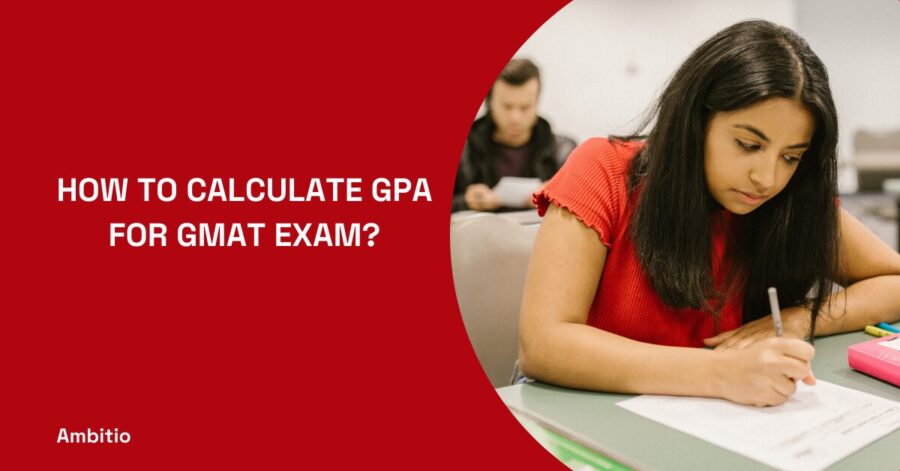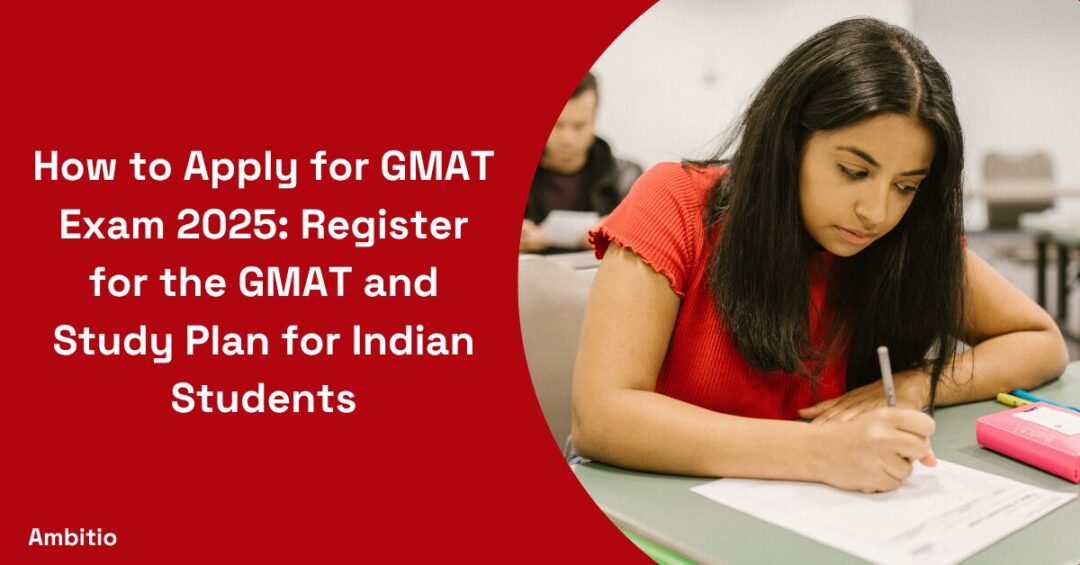4 September 2024
8 minutes read
GMAT Test Taking Tips: Best GMAT Prep Tips

Key Takeaways
- Treat the GMAT like a business strategy: know your battleground, optimize your resources, and execute with precision.
- Your prep is your competitive edge: personalize your study plan, focus on understanding over memorizing, and simulate test conditions regularly.
- Test day is showtime: manage your energy, leverage breaks wisely, and approach each section with confidence in your preparation.
The GMAT isn’t just a test—it’s a $250 million industry. Every year, countless aspirants invest time, money, and energy into this pivotal exam. But here’s the kicker: only 6% of test-takers score above 700. For many, the GMAT becomes a daunting obstacle, a make-or-break factor in their MBA dreams. The pressure can be overwhelming, leading to sleepless nights and anxiety-filled study sessions. GMAT test taking tips can come in handy here
Let’s face it: traditional prep methods often fall short. Memorizing formulas and drilling practice questions can only get you so far. The real challenge lies in mastering the test’s unique format and tackling its adaptive nature. But don’t lose heart. With strategic preparation and insider knowledge, you can crack the GMAT code. This guide will equip you with battle-tested tips to not just improve your score, but to approach the test with confidence and finesse.
How to Successfully Prepare for the GMAT Exam?
Preparing for the GMAT exam can seem daunting, but with the right strategies and mindset, you can achieve a great GMAT score. The GMAT is a standardized test designed to assess your analytical, writing, quantitative, verbal, and reading skills. It’s a crucial step for those looking to pursue an MBA or other graduate business programs. Here’s how you can prepare effectively.

1. Understanding the GMAT Structure
The GMAT consists of four main sections: Analytical Writing Assessment (AWA), Integrated Reasoning (IR), Quantitative, and Verbal. Each section tests different skills, from reasoning and comprehension to mathematical problem-solving. Familiarizing yourself with the format will make your GMAT prep more targeted and efficient.
2. Creating a Study Plan
A solid study plan is essential for GMAT test prep. Start by taking a GMAT practice test to identify your strengths and weaknesses. This initial assessment will help you focus your study efforts on areas that need improvement. Dedicate specific times each week to studying, ensuring you cover all sections: AWA, IR, Quantitative, and Verbal.
3. Utilizing Official GMAT Resources
Using official GMAT materials for your preparation is highly recommended. These resources provide a realistic representation of the questions you’ll encounter on the actual test. Practice with official GMAT practice questions and full-length tests to get a feel for the timing and structure.
4. Practicing Answer Choices
One of the keys to a good GMAT score is understanding how to approach answer choices. In the quantitative and verbal sections, eliminate incorrect answers to improve your chances of selecting the correct answer. Practice different strategies for multiple-choice questions, such as process of elimination and educated guessing.
5. Focusing on Quantitative and Verbal Sections
The Quantitative section tests your mathematical skills and problem-solving abilities, while the Verbal section evaluates your reading comprehension, critical reasoning, and grammar. For quantitative reasoning, practice a variety of mathematical questions to build your skills. For verbal reasoning, focus on reading comprehension and grammar rules.
6. Tackling Integrated Reasoning and Analytical Writing
The IR section assesses your ability to analyze data and interpret information presented in various formats. Practice IR questions to improve your data interpretation skills. The AWA section requires you to write an essay analyzing an argument. Develop your writing skills by practicing essays and getting feedback.
7. Managing Your Time
Time management is crucial during the GMAT. Each section has a specific time limit, and you’ll also have two eight-minute breaks. Practice under timed conditions to improve your pacing. Learn to recognize when to move on to the next question to avoid spending too much time on difficult questions.
8. Taking Care of Yourself
Finally, preparing for the GMAT isn’t just about studying; it’s also about maintaining your well-being. Ensure you get enough sleep, eat well, and take breaks during your study sessions. A healthy body and mind will help you perform better on test day.
9. Practice, Practice, Practice
Consistent practice is the key to success. Regularly take practice tests to track your progress and adjust your study plan as needed. The more you practice, the more confident you’ll be when you take the GMAT.
GMAT Prep Online Guides and Tips
Preparing for the GMAT can be overwhelming, and the GMAT preparation time can also vary. But having the right tips and tricks can make a significant difference. Here, we provide an overview of the best GMAT prep resources and strategies to help you achieve your best score.

1. Understanding the Structure of the Test
The GMAT is a computer-adaptive test that assesses your skills in various areas. The exam includes four sections: Analytical Writing Assessment (AWA), Integrated Reasoning (IR), Quantitative, and Verbal. Each portion of the exam is designed to evaluate different skills, from writing and reasoning to quantitative and verbal abilities. Understanding the purpose of the GMAT exam is also supremely important. Familiarizing yourself with the exam format and the number of questions in each section is crucial for effective preparation.
2. Creating a GMAT Prep Plan
A solid GMAT prep plan is essential. Because, GMAT holds great importance. Begin by accessing free official practice exams on mba.com, the website managed by the makers of the GMAT. These practice exams mimic the actual GMAT and provide a realistic test experience. Set a GMAT study schedule that fits your lifestyle, whether it’s an 8-week study planner or a longer-term plan. Regularly take timed practice tests to track your progress and adjust your study plan as needed. Take necessary GMAT test series as well.
3. Tips and Tricks for Each Section
Maximize your GMAT score with these targeted tips and tricks for each exam section.
Analytical Writing Assessment (AWA)
- Practice writing essays to develop your argumentation skills. Choose the right GMAT course for this purpose.
- Review answer explanations from past questions to understand what is expected.
Integrated Reasoning (IR)
- Focus on interpreting data from different sources.
- Use official GMAT questions to get a feel for commonly featured question types.
Quantitative
- The GMAT quant section includes problem-solving and data sufficiency questions. Make sure your GMAT study plan includes all this.
- Spend two and a half minutes on each question, and if you’re stuck, make a strategic guess to avoid spending too long on any one question.
Verbal
- Improve your score by practicing reading comprehension and critical reasoning questions.
- Resist the urge to reach for the last thing you want to include in your answer; focus on clarity and precision. There are plenty of GMAT summer courses to help you with this.
4. Utilizing Online Resources
Access to an online GMAT prep course can be invaluable. Many platforms offer mini quizzes, expert GMAT advice, and questions from past exams. These resources can help you understand the structure of the test and the types of questions you’ll encounter. Additionally, performing well on practice exams can boost your confidence.
5. Test Day Tips
Arrive at the test center well-rested and prepared. The GMAT is not a test to be taken lightly, so ensure you’ve practiced with full-length exams. Remember to manage your time effectively during the test. Spending too many minutes on any one question can hurt your overall GMAT score. Instead, make a strategic guess if you’re unsure and move on. Keep in mind that GMAT is a computer-adaptive test.
The best GMAT prep involves consistent practice, utilizing high-quality resources like good GMAT books, and maintaining a positive mindset. By following these tips and tricks, you can prepare for the GMAT exam and improve your score. Remember, the GMAT is a step towards your management education and achieving your career goals in the top 50 business schools. Good luck!
General GMAT Tips and Tricks
GMAT time management is crucial. Practice pacing yourself during full-length practice tests. Don’t get stuck on any one question – if you’re unsure, make your best guess and move on.
Focus on understanding the underlying concepts rather than memorizing formulas. The GMAT tests reasoning skills more than raw knowledge. For the quant section, brush up on basic math principles and learn to solve problems efficiently.
In the verbal section, pay close attention to answer choices. Often, the correct answer is the most concise and logical option. For reading comprehension, practice active reading and identifying main ideas quickly.
Take advantage of official GMAT prep materials. They’re the most accurate representation of the real test. Familiarize yourself with the computer-adaptive format and practice with the on-screen calculator. Get an idea of the GMAT benefits to fuel your prep as well.
Lastly, don’t underestimate the importance of the AWA and IR sections. While they don’t count towards your main GMAT score, many business schools consider them in their evaluations.
GMAT Tips to Follow on Test Day
Just like making a GMAT exam day checklist, preparing for the exam day is also quite important. Forget the last-minute cramming. The morning of your GMAT, resist the urge to review flashcards or practice problems. Instead, focus on getting into the right headspace. Do something that calms you – maybe a light jog or some deep breathing exercises. This is how you crack the GMAT.
Fuel up smart. Skip the heavy breakfast and opt for a balanced meal with complex carbs and protein. Think oatmeal with nuts or eggs on whole-grain toast. And yes, have that coffee if it’s part of your routine, but don’t overdo it.
Arrive early, but not too early. Aim for 30 minutes before your scheduled time. This gives you a buffer for unexpected delays without leaving you sitting anxiously for hours.
During the test, use those eight-minute breaks wisely. Stretch, hydrate, and have a quick snack to keep your energy up. But avoid discussing the test with other test-takers – it’ll only stress you out.
Here’s an unconventional tip: bring earplugs. Even if you don’t usually use them, the test center might be noisier than you expect. They can be a lifesaver if someone nearby is particularly fidgety or loud.
Lastly, trust your preparation. You’ve put in the work – now it’s time to show what you can do. Approach each section with confidence, and remember: one question at a time. Go beat the GMAT!
Conclusion
The GMAT isn’t just a test—it’s your first real business challenge. Think of it as a project with a high-stakes ROI: your future. The tips we’ve shared aren’t magic bullets, but rather tools for your strategic arsenal. Your job? Adapt them, refine them, make them uniquely yours.
Remember, the real value of this process goes beyond a good GMAT score. You’re not just prepping for a test; you’re honing skills that’ll serve you in boardrooms and business negotiations. So approach each practice session like a mini-MBA lesson. When test day arrives, walk in knowing you’ve already started thinking like a business leader. Now go show that adaptive algorithm what you’re made of—and let your GMAT score be the first of many successes in your business career.
Transform your GMAT preparation with Ambitio’s expert guidance. Our comprehensive approach includes personalized study plans, adaptive practice tests, and strategic insights, all designed to enhance your understanding and performance across the exam’s quantitative and verbal sections.
FAQs
How should I start my GMAT prep?
Begin by taking a GMAT practice test to assess your strengths and weaknesses. Use this to create a targeted study plan.
What resources are best for GMAT preparation?
Use official GMAT resources from mba.com, which include free official practice exams and questions from past tests.
How do I manage my time during the GMAT?
Spend no more than two and a half minutes on each question. If you’re stuck, make a strategic guess and move on to maximize your overall score.
What sections should I focus on the most?
Focus on all sections—Analytical Writing Assessment, Integrated Reasoning, Quantitative, and Verbal—as each is crucial for a good GMAT score.
How often should I take practice tests?
Take timed practice tests regularly, at least once every two weeks, to monitor your progress and adjust your study plan accordingly.
What should I do if I’m unsure of an answer during the test?
Make an educated guess and move on to the next question. Spending too much time on one question can negatively impact your overall performance.
How can I improve my score in the Quantitative section?
Practice a variety of problem-solving and data sufficiency questions, focus on key mathematical concepts, and review answer explanations to understand your mistakes.

You can study at top universities worldwide!
Get expert tips and tricks to get into top universities with a free expert session.
Book Your Free 30-Minute Session Now! Book a call now




























